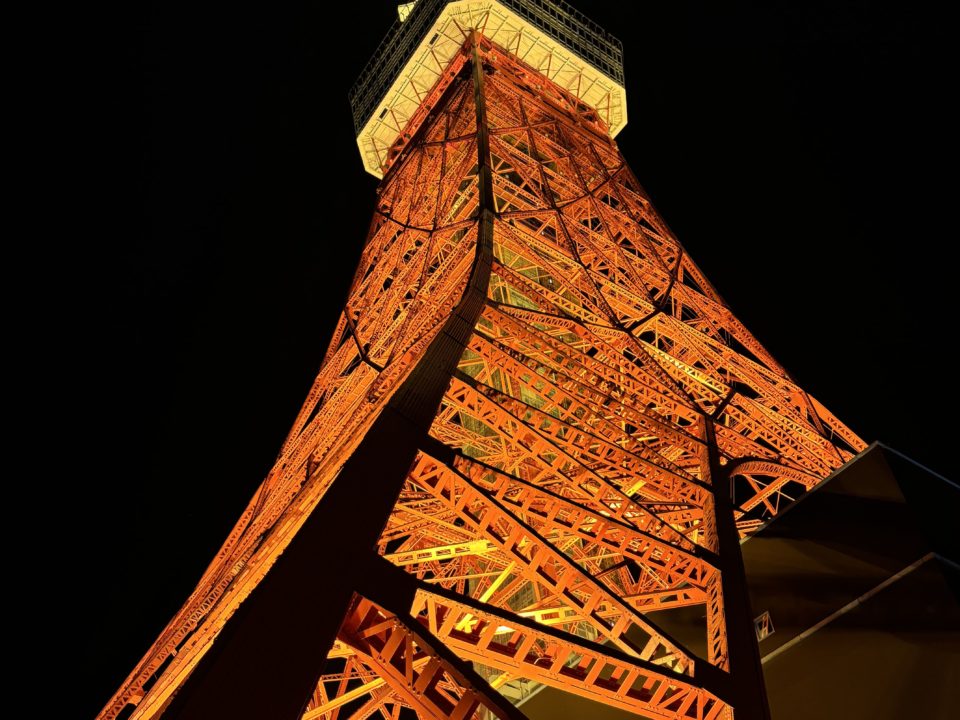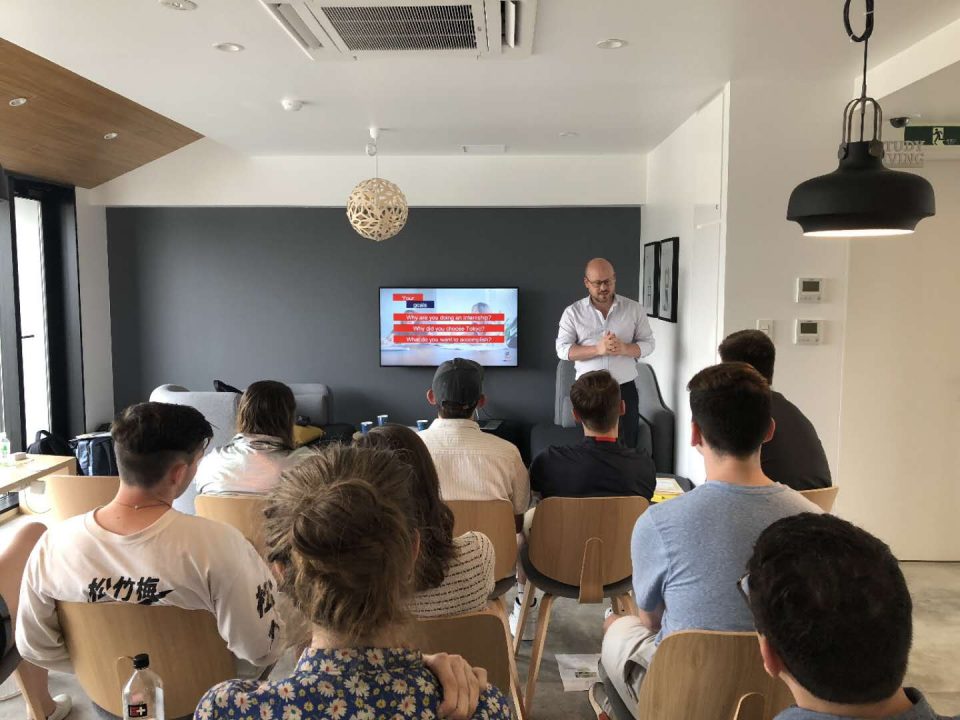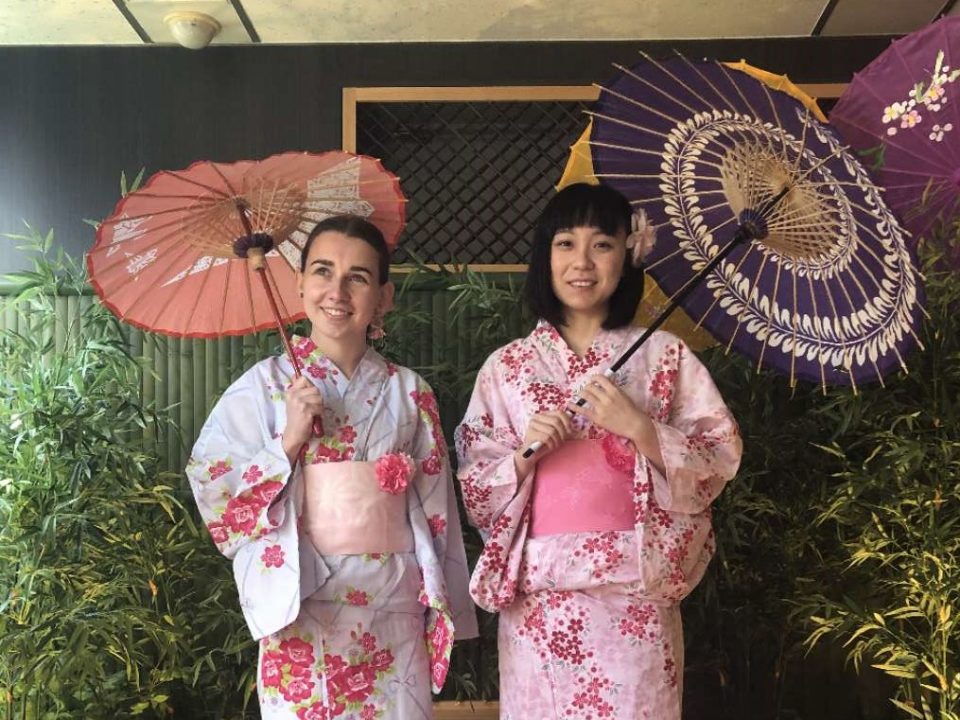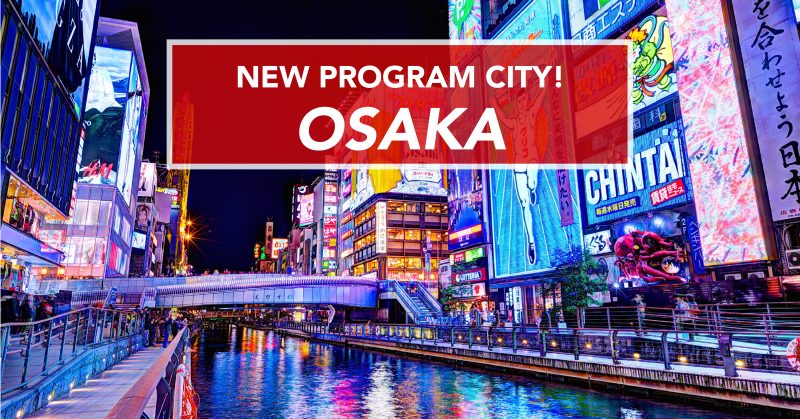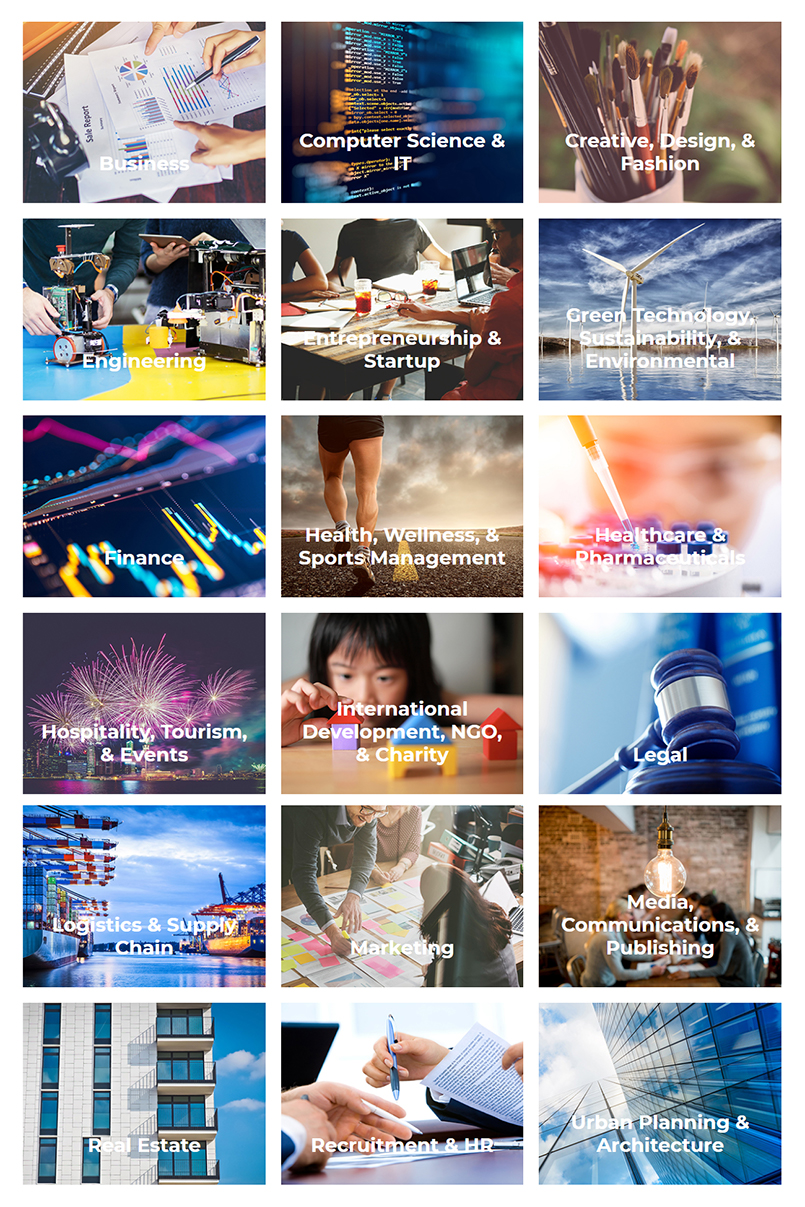
Internships in Kansai
Join us for a 1, 2, or 3-month internship in Kansai, Japan.
Why intern in Kansai Region?
- The Kansai Region is a cultural centre and the historical heart of Japan, located in the southern-central part of Japan’s main island, Honshū. It includes the metropolitan region of Osaka, Kyoto and Kobe, and together, it is the second-most populated area in Japan after the Greater Tokyo Area.
- Students will have a chance to intern in companies across those cities of the Kansai region. Each city has its own charm and specialties, in which each possesses its own differentiation. Additionally, all three cities are geographically very close to each other making it a single integrated area closely linked by rail and road networks.
- Kyoto is a city located in the central part of Japan’s Honshu island. It is known for its rich cultural heritage, including numerous temples, shrines, and gardens. Some of the most famous attractions include Kinkaku-ji (Golden Pavilion), Fushimi Inari Shrine, and Arashiyama Bamboo Grove. Kyoto is also famous for its traditional Japanese cuisine, such as kaiseki ryori and matcha green tea.
- Osaka is a bustling city located in the Kansai region of Japan. It is known for its vibrant nightlife, delicious street food, and historical landmarks such as Osaka Castle and Shitennoji Temple. The city is also home to Universal Studios Japan, one of the most popular theme parks in the country.
- Kobe is a port city located in Hyogo Prefecture, Japan. It is known for its scenic views of the sea and mountains, as well as its delicious beef. Some of the most popular tourist attractions include Kobe Harborland, Mount Rokko, and Kitano-cho, a district with many Western-style houses from the late 19th century.
- Japan is one of the world’s safest countries. The crime rate is extremely low and it is ranked 10th out of 113 on the ranking of safest and most dangerous countries.
Kansai Region’s Top Internship Career Fields
The Kansai Region is known for being a powerhouse for aspiring Engineers in the areas of AI/Robotics, Mechanical, Electrical and Software. On top of these, we offer top-notch placements in all engineering functions, from exciting startups to well-known multi-national corporations; simply tell us your preference and we’ll tailor the internship to your needs. Some other key industries very much unique to this city include Game Development, Computer Science, Renewable Energy & Environmental Technology, allowing students to get involved in cutting-edge work in these rapidly growing fields.

What’s included in Kansai


5 Key Learning Objectives
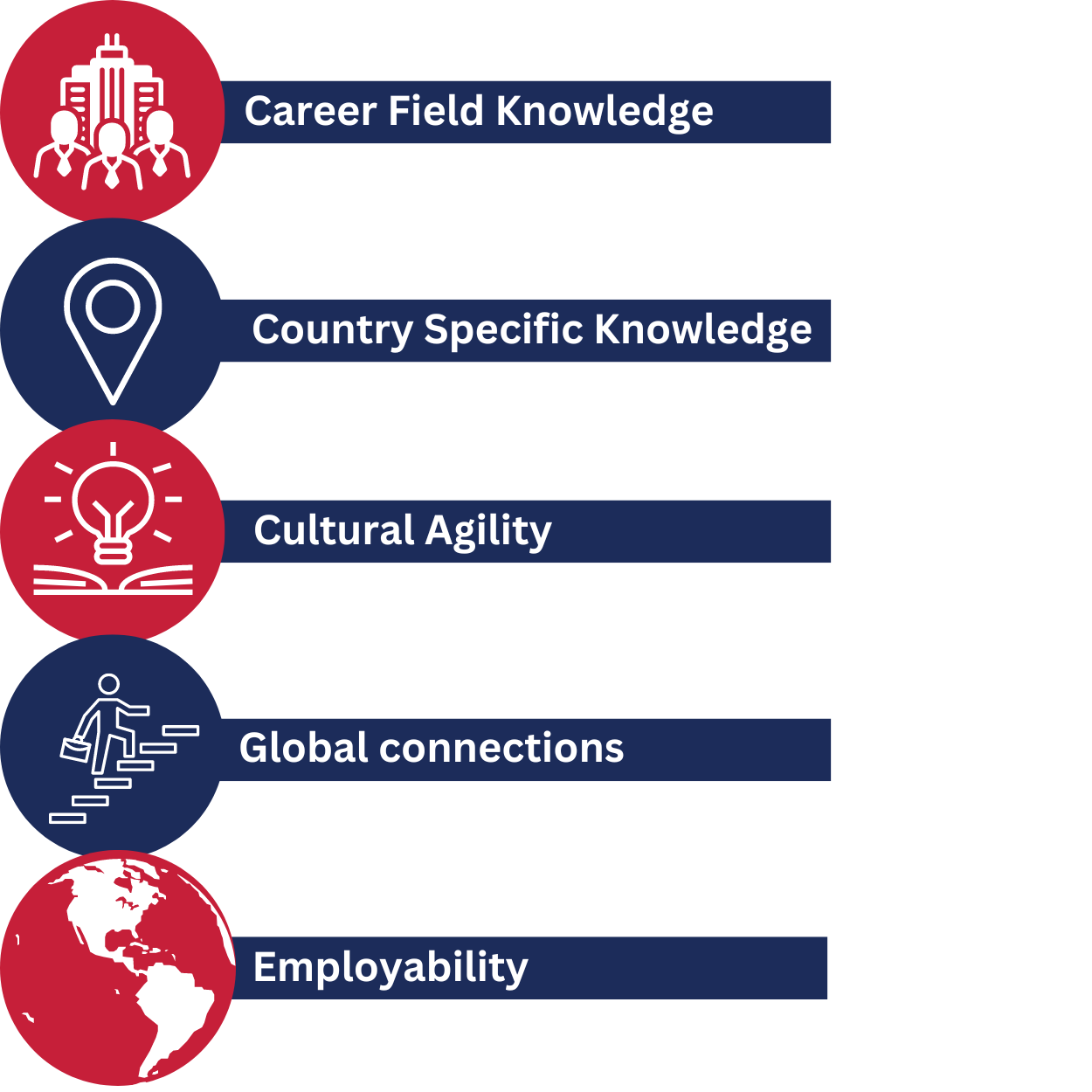
The wealth of skills and knowledge you will gain from your 5 Key Learning Objectives during your internship in Kansai will greatly increase your future employability, enrich your resume and give you the edge you need to land your dream job.
For every Kansai Internship Program intern
In addition to the above, your program will also include;
- High-quality accommodation
- CareerBridge, our Professional Development Hub, which contains 12 professional development courses
- Welcome Pack on arrival (SIM & Travel card included)
- Airport Pickup and Accommodation Drop-off
- Orientation Weekend including city tour
- Company First Day Support/ Drop-off
- Business, Cultural, and Community outreach events
- 24/7 emergency support
- Exclusive Alumni Network and LinkedIn groups
Need more info?
Still browsing? You can also find Pricing, Internship Career Fields, Program Options, Application Process and Program Dates in the tabs at the top of this page.
Need more info?
Still browsing? You can also find Pricing, Internship Career Fields, Program Options, Application Process and Program Dates in the tabs at the top of this page.

The latest from our Kansai Program
Our Intern Influencers have been busy recording their adventures interning abroad. Check out what they have to say.
Read all about life in Kansai from our latest blog posts in the region.
A program to suit you
Take a look at our program options in Kansai:
Internship Programs in Kansai
International Internship Program
Complete a one, two or three-month internship in Tokyo.
Choose from a range of industries and gain international experience in your chosen sector.
Our Internship Program includes accommodation, networking events, cultural events and 24/7 on-the-ground support.
Placement-Only Internship Program
Complete a one, two or three-month internship in Tokyo.
The ‘Placement Only’ option is for applicants who do not require additional components of our regular internship programs.
Our Placement-Only Program does not include accommodation, networking events, business events and cultural events.
Experiences Programs in Kansai
Japanese Food, History and Culture: Going Beyond Sushi
Explore Japan’s enigmatic culinary landscape, from its traditional food to modern trends, as you travel through Osaka, Kyoto, and Tokyo.
Korean and Japanese Pop Culture
Dive into the heart of Asian pop culture on this electrifying two-week program! We’ll journey through the vibrant streets of Korea and Japan, where cutting-edge trends meet rich cultural heritage.
High-quality Accommodation
By choosing our Internship Program you will be provided a high-quality accommodation in fully furnished shared apartments or hotel-style rooms.
Hotel-Style: Shared room with a roommate, equipped with 2 twin-sized beds, a private bathroom, a small kitchen, and a table with 2 chairs. Access to a washing machine either in your room or within the building.
Share House or “Social Residence” Style: The common choice in Japan for temporary foreign students and professionals. Sleeping space and shared kitchen, bathrooms, lounge spaces, and laundry facilities with other residents, fostering a collaborative living experience.
All housings are vetted and approved by CRCC Asia:
- Convenient location with amenities and/or public transport links in the surrounding area
- Wifi and utilities are included (there is a fair usage policy, so any excess may be deducted from your accommodation deposit)
- Within reasonable commuting distance of all our host companies
- Some accommodations require a refundable deposit at check-in
One of CRCC Asia’s 5 Key Learning Objectives is “Global Connections” – therefore we will do our best to ensure all participants are housed in the same building/complex. Due to demand, for some program locations it might be necessary to use accommodation in different locations across the city.
Please Note: The type of accommodation you will get will depend on availability and the location of your host company.
Program dates
Places are limited and allocated on a first-come, first-served basis. Be sure to apply at least 6-10 weeks prior to your preferred start date.
Kansai Placement-Only Dates
We also offer a Placement-Only program for 1, 2, 3 months all year round.
Please refer to all program start dates HERE.
Placement-Only Programs include guaranteed internship placement & emergency support, but exclude accommodation, visas, and events.
Program Fees
INTERNSHIP PROGRAM – ‘Our award-winning flagship program’
- USD
- GBP
- EUR
- AUD
- NZD
PLACEMENT ONLY – ‘Our value option’
- USD
- GBP
- EUR
- AUD
- NZD
All costs are estimated in USD:
Flights
Meals
Transportation
Utilities
Entertainment
Additional Incidentals
Planning your budget for your internship experience in Kansai is an important step. This estimated cost of living guide will help you understand the potential expenses you may encounter during your stay. Please note that these are estimates and your actual costs will vary significantly based on the season, location and your individual spending habits, dining choices, and lifestyle preferences.
For instance, your budget may be influenced by factors like whether you prefer cooking at home or dining out, your choice of transportation, and your shopping and entertainment needs. Additionally, unexpected changes, such as fluctuations in exchange rates or local prices, could impact your overall spending.
We strongly recommend conducting thorough research and considering your specific needs and preferences when planning your budget for your trip.
Visa Requirements
An internship in Japan that is less than 90 days without remuneration is regarded as a voluntary activity, therefore no visa is required if you are citizen of a country on this list.
OR
For countries that do not benefit from visa exemption, you may need to apply for a visa. Please contact your local Japanese Embassy/Consulate-General for more information on the visa type that applies to you, as well as the application process. The cost of your visa is not included in the Program Fee. It is recommended you submit the visa application at least 4 weeks prior to your Program Start Date. Immigration regulations are constantly changing so it is advised you pay attention to updates on the aforementioned list.
CRCC Asia has partnered with Saint Peter’s University in Jersey City, New Jersey, to offer a U.S. transcript and award 3, 6, or 9 academic credits for our international internship programs. Students will be enrolled in CRCC-295: CRCC Asia Internship Course.
Credit awarded will be based on the successful completion of CRCC Asia’s Global Internship Curriculum, CareerBridge, proof of hours worked, reflective essay, and an evaluation from your host company supervisor.
Access & Mobility
Q: How accessible is public transport in Tokyo for differently abled people?
- A: Tokyo’s public transport system is known for being efficient and fairly accessible, particularly in newer stations and on major lines. Most stations have elevators, escalators, and tactile paving for the visually impaired, and staff are available to assist with portable ramps for wheelchair users. However, some older stations might still be lacking in full accessibility, so it’s helpful to plan ahead, especially if you’re traveling outside of central areas.
Q: Are there pedestrian-friendly roads and sidewalks in Tokyo?
- A: In most areas, Tokyo’s sidewalks are well-maintained, with tactile guidance for visually impaired pedestrians and auditory signals at large intersections. However, in older or more residential areas, sidewalks may be narrower or less accessible. Generally, Tokyo is a very pedestrian-friendly city, but as with anywhere, it’s good to remain aware of your surroundings.
Q: Are public buildings accessible?
- A: Tokyo’s modern buildings and public spaces are generally well-equipped for accessibility, with ramps, elevators, and accessible restrooms. Some smaller businesses or older buildings may not be as accessible, but overall, the city does a good job of accommodating people with mobility challenges.
LGBTQIA+ Norms
Q: Is Tokyo LGBTQIA+ friendly?
- A: Tokyo is becoming increasingly welcoming to the LGBTQIA+ community, particularly in districts like Shinjuku’s Ni-chome, which is known for its LGBTQIA+ nightlife and supportive community. The city’s Rainbow Pride Parade continues to grow each year, and there’s a general atmosphere of acceptance, especially among younger generations. However, legal recognition for same-sex relationships is still pending, and societal attitudes can vary.
Q: What legal protections exist for the LGBTQIA+ community?
- A: While Japan is gradually moving towards greater LGBTQIA+ inclusivity, same-sex marriage is not yet legal. That said, Tokyo has introduced partnership certificates for same-sex couples, offering some legal recognition and benefits. There’s still progress to be made in terms of comprehensive anti-discrimination protections, but Tokyo is leading the way in fostering a more inclusive environment.
Race and Ethnicity
Q: Is Tokyo diverse in terms of race and ethnicity?
- A: Tokyo is becoming more diverse, with a growing number of foreign residents and visitors. Areas like Shin-Okubo (Koreatown) and Nishi-Kasai (Little India) showcase the city’s multiculturalism. While Japan is still predominantly ethnically homogeneous, Tokyo stands out for its international vibe, particularly in its food, fashion, and art scenes.
Q: Do foreigners face challenges in Tokyo?
- A: While Tokyo is generally very open and friendly toward foreigners, there can be occasional language barriers or cultural differences. You might encounter some stares or assumptions, but these are usually driven by curiosity rather than negativity. Most foreigners find Tokyo to be a safe and welcoming city, and support services for expatriates and tourists are continually improving.
Religious Tolerance
Q: What religions are practiced in Tokyo?
- A: Tokyo is home to a variety of religious practices, from the traditional Shintoism and Buddhism to Christianity, Islam, and more. Shrines and temples are common throughout the city, and places like Meiji Shrine and Senso-ji Temple are must-visit spots. Tokyo’s religious diversity reflects its welcoming attitude towards different faiths.
Q: How should I behave when visiting religious sites in Tokyo?
- A: When visiting religious sites, it’s important to follow local customs, such as purifying your hands at the entrance to a shrine and being mindful of noise levels. Respectful behavior is expected, especially at popular sites where both tourists and locals come for quiet reflection. It’s a great way to experience a peaceful side of Tokyo.

